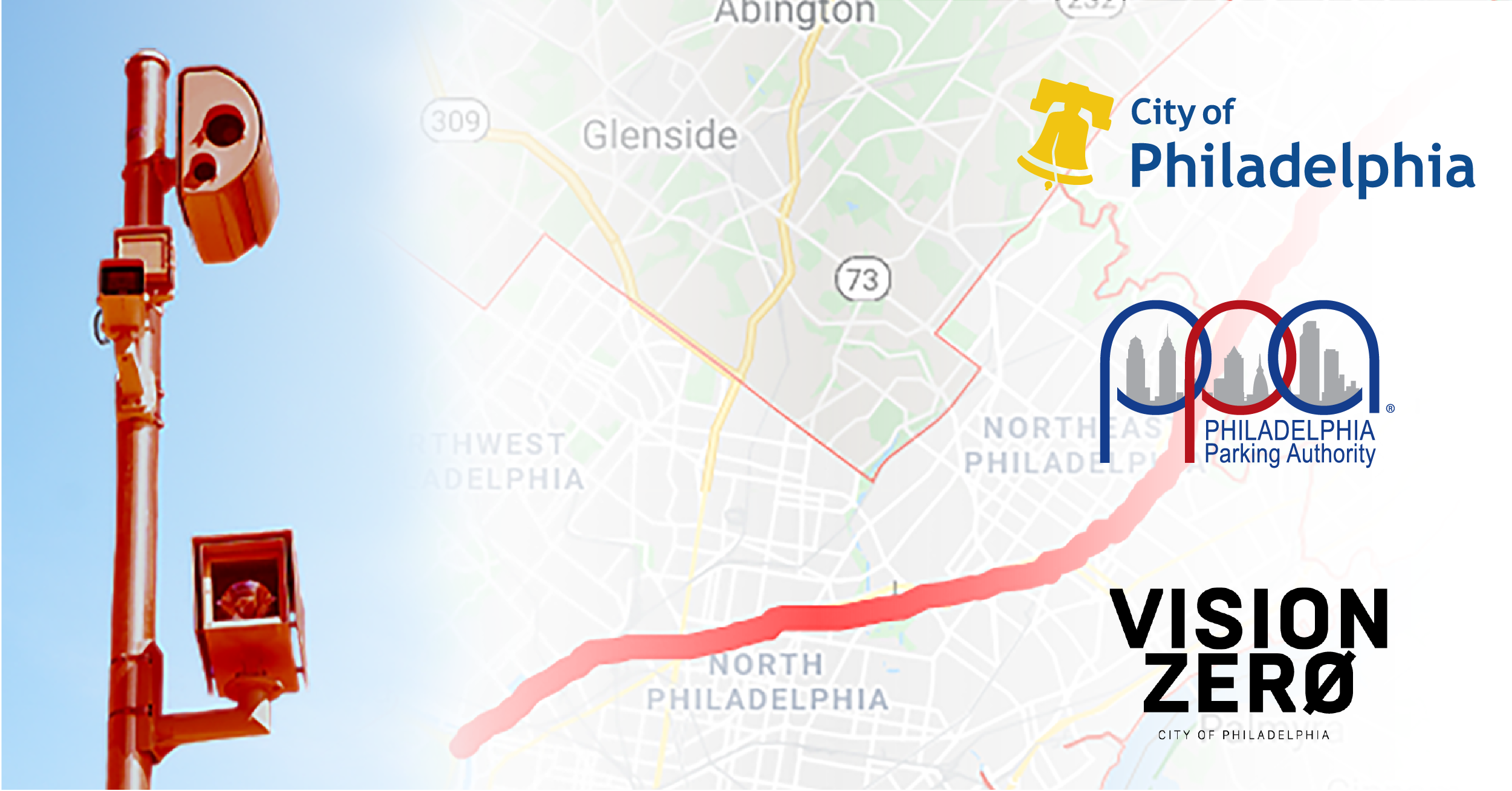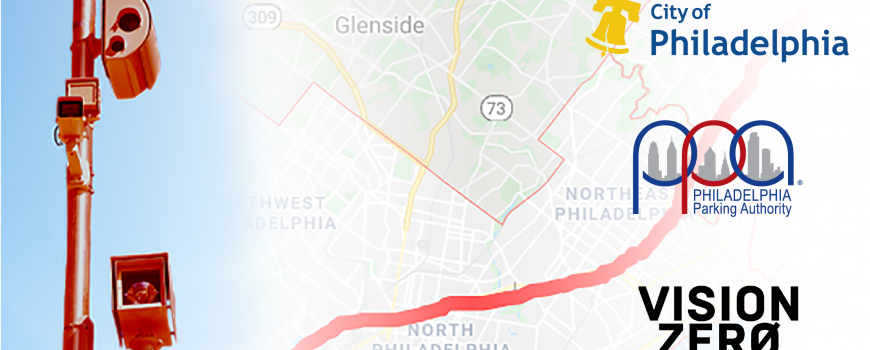
(PHILADELPHIA) As a result of legislative action in 2018 authorizing the use of speed cameras on Roosevelt Boulevard, the Philadelphia Parking Authority installed speed cameras at eight locations to improve safety and save lives in conjunction with Mayor Kenney’s Vision Zero initiative.
The cameras were activated on June 1st and after issuing warnings for the first 60 days – fines will now be levied beginning August 1st for speeding on Roosevelt Boulevard. Any vehicle electronically clocked traveling at a speed in excess of 11 miles per hour over the speed limit will be mailed a notice and fine for speeding.
Violators will be subject to a fine up to $150 — depending on the speed of the vehicle at the time of the violation, and will receive a violation and fine notice to the registered address of the vehicle. No points will be added to an individual’s driving record. The fine is aimed at deterring driving at excessive speeds that could lead to fatal injuries.
According to PPA Executive Director Scott Petri, “the decision to place speed cameras on Roosevelt Boulevard is the result of a number of high speed-related accidents over the years, many involving serious injury and the tragic loss of life.”
Roosevelt Boulevard currently has nine intersections that are monitored by red light cameras. As a result, red light running has dramatically decreased on the Boulevard by 58% since 2005. When the first red light cameras were activated at Grant Avenue and the Boulevard in 2005, 25,673 red light running violations were recorded. At this same intersection in 2018, 4,697 red light camera violations occurred – a staggering 82% reduction in red light running at this intersection.
“We believe red light cameras save lives — and we believe automated speed enforcement cameras along Roosevelt Boulevard will save more lives,” Petri said.
“Traffic deaths in Philadelphia are preventable and never acceptable,” said Mayor Jim Kenney. ” Adding automated speed cameras on the Boulevard is one of the most effective steps that we can take to eliminate traffic deaths. With the installation of these cameras, we continue to make progress on our Vision Zero efforts to eliminate traffic fatalities in Philadelphia by 2030.”
With an estimated 140 communities in 14 other states already utilizing automated speed enforcement cameras, their effectiveness has been clearly demonstrated. For example, between 2014 and 2017, New York City saw reduced speeding at camera locations by 63% while reducing fatal crashes by 55%.
There are now thirty-two (32) automated speed enforcement cameras operational at eight (8) different locations on Roosevelt Boulevard. Posted signage has also been installed to indicate intersections in which speed cameras are installed. The automated speed enforcement camera locations are;
-
Roosevelt Boulevard and Banks Way
-
Roosevelt Boulevard and F Street
-
Roosevelt Boulevard and Deveraux Street
-
Roosevelt Boulevard and Harbison Avenue
-
Roosevelt Boulevard and Strahle Street
-
Roosevelt Boulevard and Grant Avenue
-
Roosevelt Boulevard and Red Lion Road (near Whitten Street)
-
Roosevelt Boulevard and Southampton Road ( near Horning Road)






